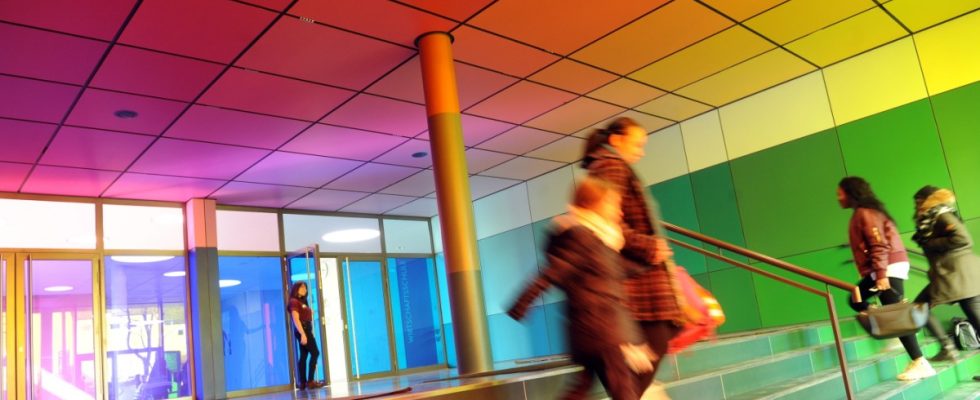In eight weeks, 114,000 primary school students will receive their transfer certificate. They are the first in Bavaria to be able to choose between four types of schools – depending on their grade. In addition to secondary schools, middle schools and high schools, selected business schools will start fifth grade from September. This type of school is a Bavarian specialty, a practice-oriented, vocational school that prepares students for careers in business and administration from the seventh grade at the earliest and awards the intermediate school leaving certificate.
There are currently 16,600 students attending the 74 business schools, both state and private. The former Minister of Education Michael Piazolo (Free Voters) made it possible for all business schools to start with the sixth grade in 2020. 55 currently offer a preparatory class in which girls and boys from different types of schools are prepared for the start of the business school program in the seventh grade. Education Minister Anna Stolz (FW) is now going one step further: the fifth grade is to be introduced as a model experiment. All schools that have a preliminary class are allowed to apply. This can be offered in the morning or as a full day. With the school experiment, Stolz wants to “strengthen vocational training in Bavaria”.
The Bavarian Teachers’ Association (BLLV) sees this as a threat, speaks of a “blatant wrong decision to the detriment of the children” and fears a “further weakening of the middle school”, an “intensification of pressure to transfer” and a “danger to the M train”. . Students can also complete their intermediate school leaving certificate at some of the 948 middle schools in the Free State.
Johann Riedl is surprised by these concerns: “Sure, business schools are always suspected of destroying other types of schools, but that is irrational. This type of school is so small, we don’t endanger any others.” Then the headmaster of the Deggendorf business school reels off arguments. The admission requirements are clear: girls and boys need an average grade of 2.66 in math, German, local history and general knowledge to transfer to business schools. The same applies to the 374 secondary schools. “Anyone who has an average of 2.66 will not attend middle school and we won’t take anyone away from high school either, because children with 2.66 can still go to trial classes,” says headmaster Riedl. That doesn’t work in business schools. Riedl says he doesn’t understand why middle school representatives are so afraid of the expansion.
Martin Löwe, the head of the Bavarian Parents’ Association, feels the same way; he sees no “serious difference” to the current situation. Löwe welcomes the fifth grade because children “often perceive changing schools as stressful” and they avoid detours to other types of schools in the future. As expected, the Association of Vocational Schools is pleased and praises that “the structural imbalance” in the school system is finally being “straightened”.
Many middle school teachers worry that whoever is left will learn from them
And at the secondary schools, the real competition – based on average grades? Ulrich Babl, chairman of the secondary school teachers’ association, is confident and praises the “quality” and the “unique selling point” of the secondary school diploma: Depending on their inclinations and talent, students can choose different elective subject groups and specialize. But Babl takes the Ministry of Culture to task: The offerings of secondary schools should not be limited anywhere because a business school there starts with the fifth grade. He was assured of this in the ministry.
In order to understand the fears, you have to look at students as a resource: the number of classes, the number of teacher hours, the breadth of the school offering and the salary of the headmaster depend on the number of children. The fewer students move to a school, the narrower the offering becomes. Many middle school teachers worry that whoever is left will learn from them – with fatal consequences for the children’s self-esteem and their everyday work.
The Deggendorf headmaster Riedl is convinced of the preliminary class, he was there from the beginning and would send out the application immediately. However, the prerequisite is the consent of the school authority and the secondary school authority. This is probably an attempt by the Ministry of Culture to prevent the local scandal. Those who agreed to the model experiment can hardly complain. Riedl is still waiting for his district administrator’s decision. Bernd Sibler (CSU) knows his stuff; he was Minister of Culture before Piazolo. But Sibler has bad news: the situation in the city of Deggendorf is special, he explains on the phone. There is only the Catholic girls’ secondary school and there has only been a class for boys there for two years. This shouldn’t be disturbed. “We want to look at the effects first and not be part of the first wave this time.”

